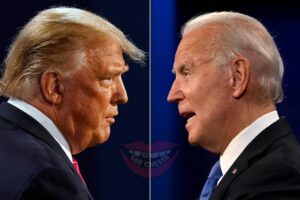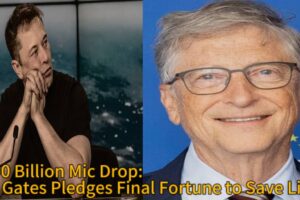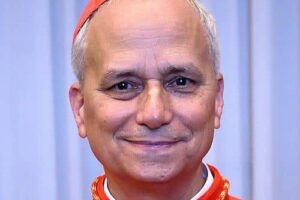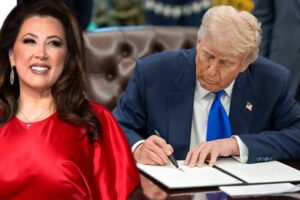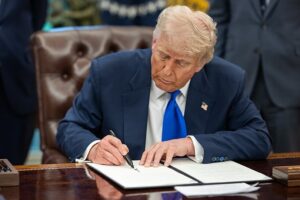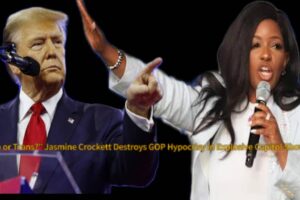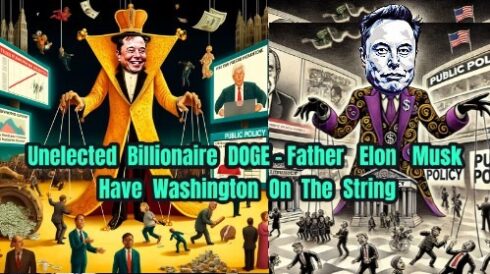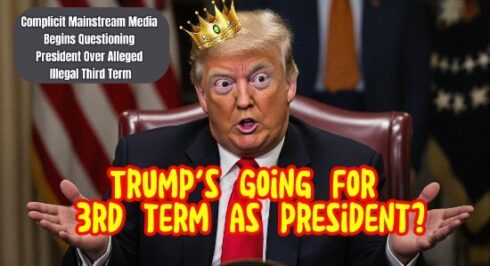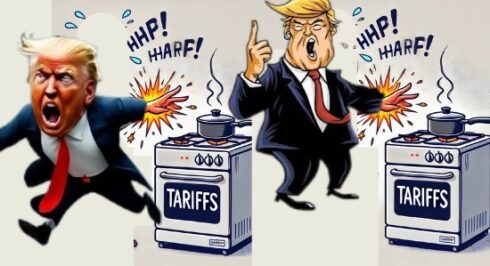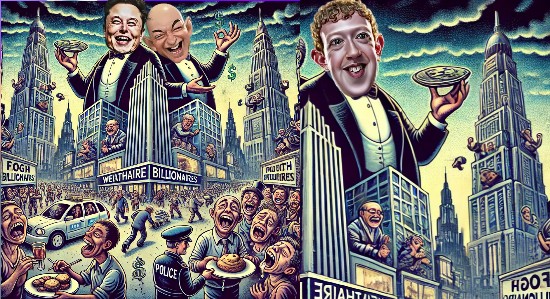DOGE-Father Elon Musk taking things too far? Move over, bureaucrats—there’s a new sheriff in town, and he goes by the name of Elon Musk. In a messy affairs that feels like a billionaire’s fever dream, Musk has allegedly influenced the closure of USAID, the U.S. Agency for International Development. This isn’t just another Twitter joke or meme-stock stunt; this is governance by the ultra-rich, where policy decisions are seemingly made in Tesla boardrooms rather than Congress.
Democratic lawmakers, including Senator Chris Van Hollen, were reportedly blocked from entering USAID’s headquarters. Meanwhile, USAID’s website mysteriously disappeared faster than Musk’s exes from his Twitter following. Employees were told to stay home, and essential personnel only were allowed in. Musk, now heading the newly minted Department of Government Efficiency (DOGE), has declared the agency “beyond repair.” But what does this mean for democracy, and more importantly, why are we letting a man obsessed with Dogecoin dictate foreign policy?
Oligarchs and Unelected Influence: A Democracy on Autopilot?
DOGE-Father Elon Musk’s move raises a bigger, scarier question—what happens when unelected billionaires start making critical government decisions? The fundamental principle of democracy is that elected officials, accountable to the public, make decisions. But when someone like Musk, with no ballot-box mandate, swoops in and starts pulling policy levers, we enter murky waters of oligarchy.
This trend isn’t new. Corporate leaders, lobbyists, and think tanks have long exerted influence over policy, but Musk is taking things a step further by actively shaping federal agency functions—or in this case, shutting them down. With Secretary of State Marco Rubio stepping in as acting director of USAID, we’re now watching a real-life game of Monopoly, where instead of buying Park Place, DOGE-Father Elon Musk is acquiring government institutions.
DOGE-Father Elon Musk Is Turning Affairs to Meme
The abrupt closure of USAID doesn’t just impact D.C. politics; it has significant global consequences. USAID has been the backbone of American foreign assistance, providing aid to millions worldwide. With DOGE-Father Elon Musk declaring it obsolete and Secretary Rubio attempting to merge it into the State Department, programs are now in limbo, and humanitarian efforts are grinding to a halt.
Rapid, unilateral changes to government agencies without legislative debate create instability. Decisions of this magnitude require oversight and deliberation, not an impulsive declaration from a tech mogul with a penchant for flamethrowers and underground tunnels. If we allow governance to be driven by erratic, Muskian decision-making, what’s next? Will SpaceX take over NASA? Will Tesla police departments soon replace patrol cars with Cybertrucks?
Legal Minefields: Can DOGE-Father Elon Musk’s Takeover Even Stand in Court?
There’s one small detail that may put a dent in Musk’s grand vision—constitutional law. The U.S. government isn’t a startup, and despite Musk’s confidence in “moving fast and breaking things,” there are legal checks and balances in place. Democratic lawmakers are already considering lawsuits, arguing that shutting down or merging a federal agency requires congressional approval.
If this action is allowed to stand, it could set a dangerous precedent where unelected figures can restructure the government at will. While DOGE-Father Elon Musk’s takeover might make for a compelling sci-fi movie plot, in reality, it raises constitutional concerns that could spark a major legal battle. If Congress allows this, who’s to say another billionaire won’t come along and decide to “optimize” the IRS or the Department of Justice next?
The Trust Deficit: A Government by the 1%?
Public trust in government is already fragile, and actions like these don’t help. When citizens see billionaires exerting unchecked influence over institutions, it erodes faith in democracy. If elections don’t determine who wields power, then what’s the point of voting at all?
The USAID controversy underscores the risk of allowing powerful, unelected individuals to shape policy decisions without transparency. When tech magnates dictate global diplomacy, we risk turning governance into a playground for the ultra-rich, sidelining voters in the process. If we’re not careful, the next presidential debate may just be a panel of billionaires deciding America’s fate over a live streamed poker game.
A Billionaire’s Playground or a Functioning Democracy?
DOGE-Father Elon Musk has undoubtedly revolutionized industries, but should he be revolutionizing democracy, too? The USAID saga illustrates how unchecked private influence over government functions can lead to chaos, legal uncertainty, and a crisis of public trust. While some might argue that Musk is simply trying to “streamline inefficiency,” democracy is not a business to be optimized—it’s a system built on accountability, checks and balances, and the will of the people.

